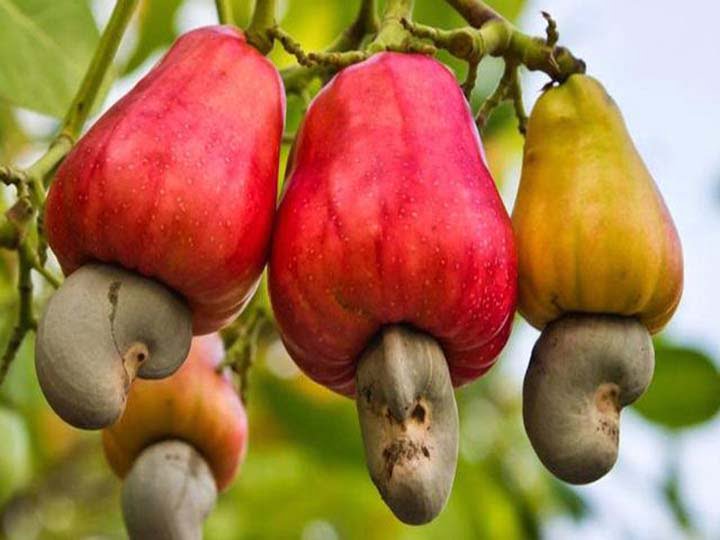Benefits of cashew nuts
You must have saw cashew nuts even if you haven’t eaten them. But have you ever seen a real cashew tree?
The cashew nut we saw on the market is actually not the true fruit of the cashew tree, but the pseudocarp. As shown in the following picture, the red fruit is the true fruit called the cashew apple which can make into butter, but their feature of high perishableness thwarts any attempt to bring them to a global market. And the black fruit in the picture is the cashew nut we often see. Which contains a high nutritional value.
Currently, cashew shelling machines, cashew peeling machines, and other equipment are often used in the market to process cashew nuts.

- Fatty acids in cashew nuts are mainly unsaturated fatty acids, of which oleic acid accounts for 90% of unsaturated fatty acids, and linoleic acid accounts for only 10%. Therefore, the cashew nut is less likely to rancidity than other nuts rich in linoleic acid.
- Cashew nuts contain twice as much protein as cereals, and their amino acids complement those of cereals.
- Cashew nuts are rich in fat, can moisten bowels and relieve constipation, and have a very good moisturizing beauty effect, which can delay aging.
- The content of vitamin B1 in cashew nuts is second to sesame and peanut. It has the effect of supplementing physical strength and eliminating fatigue. It is suitable for people who are easily tired.
- Cashew nuts are rich in vitamin A. They are excellent antioxidants that can make the skin luster and look better. Cashew also has the effect of lactation and is beneficial to women with insufficient milk secretion.
- Cashew contains a lot of protease inhibitors, which can control cancer.
- Frequent consumption of cashew nuts can strengthen the body, improve the body’s disease resistance, and increase weight.
